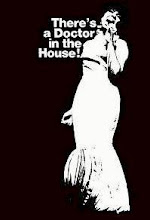was the first time in twenty years that I wouldn't be performing in public. I had lots on my mind, and I couldn't see myself running around. I needed to stop and think.« (Ray Charles with David Ritz: Brother Ray. Ray Charles' Own Story, New York 3rd ed. 2004, p. 254).
 |
| ABC-Paramount LP # 495 (1964) |
As it goes with novelty packages, they tend to be a mixed blessing. As mixed as the songs on the album: jazzy C&W, old vaudeville songs or even »pop standards« (that's how Billboard described »Feudin' & Fightin'«). On the other hand, all ten songs on the LP (six with the Raelettes) sound strangely alike, professionally done oldtime jazz-pop, but actually little of that was in any way up to the »modern trends« in music. Charles, who was proud of being a trend-setter and indeed had set different trends in the past, offers nothing much trendy on this LP. And just think what times these were! The first year of the Great British Invasion during which, ironically, black music played by white UK bands outsold black music played by black US artists. In this context, Ray Charles acquired, for some diligent observers at least, the status of a »father figure«, but with a twist to it: He had prepared the way of the »Mersey Sound« in many ways yet his UK emulators outstripped his fame by 1964. In a noteworthy gloss by P.F. Kluge, published in LIFE (Oct. 2, 1964, p. 28: »U.S. Roots of the Beatle Beat«), we read: »If the Mersey sound is an art form, this (i.e. black U.S. music) is the music that gave birth to it, although not one of its inventors, not even the very popular composer-performer Ray Charles, has ever been as sought after, televised, filmed, interviewed and just plain loved as their English imitators.«
* * *
The 50's-sounding song »Smack Dab In The Middle«, shuffling along in a R&B-style of years past, was the only moderately successful tune of that album. It entered the Billboard Hot 100 Pop the first week of October and one month later was lingering at #52. Another week later, in mid-November, the song dropped out of the charts. This all becomes more emblematic of Charles's status and style in '64 if you consider for a moment the songs which meanwhile climbed the charts: When »Smack Dab In The Middle« entered the Hot 100, »Dancing On The Street« (Martha & The Vandellas) had reached # 04, »The House Of The Rising Sun« (Animals) stood at # 08. The Shangri- Las' »Leader Of The Pack« and The Velvelettes with »Needle In A Haystack« were coming up behind; at the beginning of November, Motown's sequin-dressed valkyries made it to the top with »Baby Love«; when Charles's song left the charts, the Rolling Stones' cover of Irma Thomas's »Time Is On My Side« was approaching the Top Ten. Compared to all that, Charles's album seems come out of another epoch.Need some demonstration of this? Well, there is ample choice on the LP. As I have a special liking for the Raelettes, you can hear in the following two songs that feature them as backing vocal group. I picked »Two Ton Tessie (from Tennessee)« and »Who Cares For Me« since in these tunes the backing vocals are given much room. The first song was recorded on May 7, '64, at the N.Y. Bell Sound Studios (days before Ray Charles would depart for Europe), the latter back in February 1962 in L.A. For the record I can add that almost all other songs of the LP were recorded in May '64 in New York, with the exception of »Move It On Over« (likewise from '62). Here you go:
Ray Charles (feat. The Raelets/Raelettes):
»Two Ton Tessie« / »Who Cares (For Me)« from the ABC-Paramount LP # 495 (1964, mono):














No comments:
Post a Comment